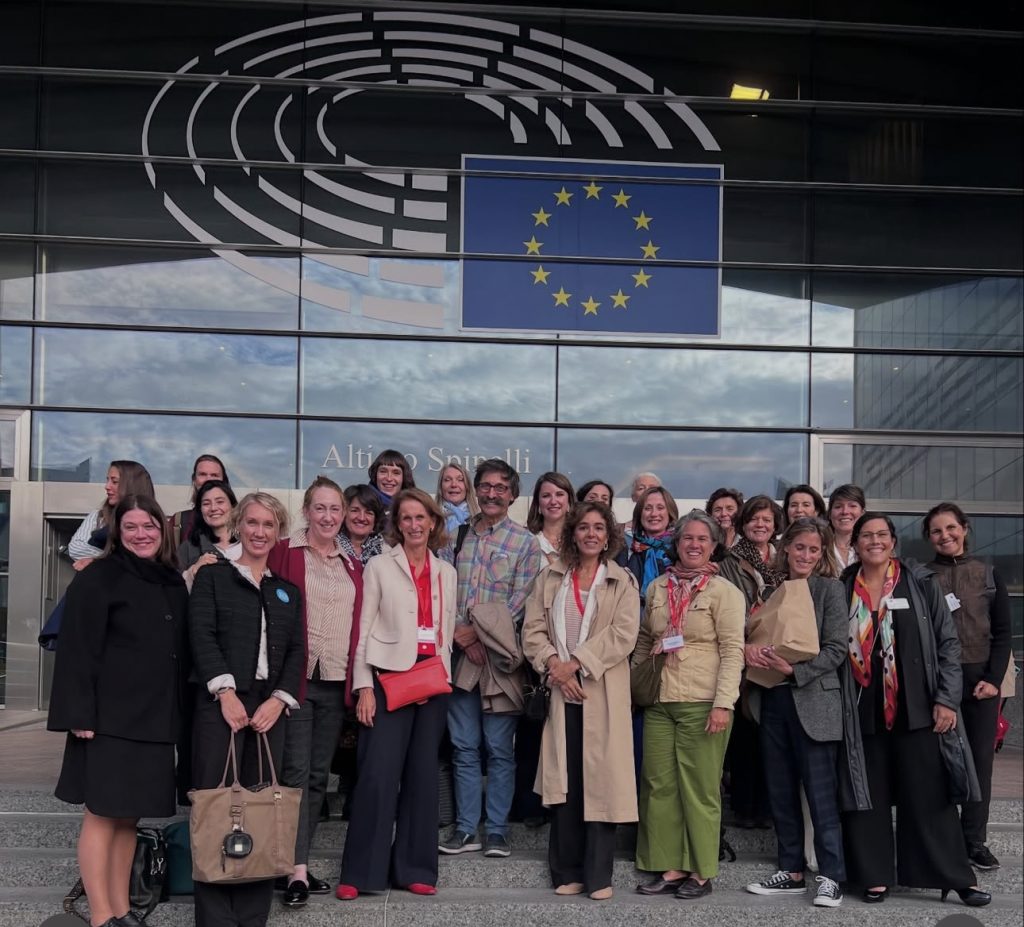Brussel 22.september 2025
Landsforeningen var i Brussel for å presentere funn fra rapporten «The State of Motherhood in Europe» sammen med andre interesseorganisasjoner og Make Mothers Matter.
Les hovedfunn fra Sverige under:
Half of mothers in Europe face mental health struggles
Sweden among the most affected
A new Europe-wide survey by international NGO Make Mothers Matter (MMM), in partnership with Kantar, reveals a silent crisis in maternal mental health, especially in Sweden, where mothers report the highest rates of depression among the surveyed countries. A wake-up call for policy makers, health professionals, business leaders and society as a whole
The study, “State of Motherhood in Europe 2024”, gathered responses from 9,600 mothers from 12 countries in Europe and found that:
- 58% of Swedish mothers report mental health issues (vs. 50% EU average)
- 38% suffer from anxiety (vs. 32% EU average)
- 33% suffer from anxiety (vs. 20% EU average)
- 19% report perinatal depression (vs. 17% EU average)
The findings show Swedish mothers continue to shoulder up to nearly 70% of domestic responsibilities alone — regardless of whether they are employed or not, impacting their well-being, careers, and financial stability:
- 1 in 4 mothers state that motherhood has negatively affected their work/career. Among those, more than half have seen their regular income decrease, and nearly 30% felt more pressure to accomplish in their company
- 23% are dissatisfied with their work status
- Mothers are the primary providers of childcare for school-aged children (37%), far ahead of fathers (20%) and grandparents (18%)
- 17% of their partners do not take their entitled paternity leave, and 37% take less
- 36% of Swedish mothers consider themselves as carers (vs.25% EU average), meaning that they with a household member with additional care needs, including herself (due to disability, health conditions, or other reasons)
Lena Yri Engelsen, Secretary General at Landsforeningen 1001 dager, underscores the urgent importance of this mental health crisis:
“Maternal mental health is the single strongest predictor of a child’s wellbeing — it’s time the world recognized this truth.
In Scandinavia in general most women receive good care for their physical health, but services in regards to mental health are desperately lacking. In addition to this, there’s the absence of the supportive “village,” the challenge of combining work with raising children, and the constant pressures of society all take their toll.
There must be a shared understanding that women cannot do everything, all at once — and certainly not alone, they need support.”
“When mothers fall through the cracks of our systems—when their care work goes unsupported, unrecognized, and unshared—the cost is collective,”
said Afaf Abounouadar, Executive Director of MMM.
The full report will be presented at the European Parliament on September 22, urging policymakers and employers to act. MMM calls for a revaluation of motherhood, investment in maternal mental health support, shared responsibility in unpaid care, and workplace adaptation to caregiving responsibilities.
Media contact:
Ariane de Liedekerke
Network lead, Make Mothers Matter
ariane@makemothersmatter.org
+32 474 84 59 66
www.makemothersmatter.org
About Make Mothers Matter
Make Mothers Matter is an international NGO founded in 1947 to promote the recognition and support of the essential role of mothers in society. MMM holds general consultative status with the United Nations and works across Europe and globally to influence policy for mothers and families.
About Make Mothers Matter
Make Mothers Matter is an international NGO founded in 1947 to promote the recognition and support of the essential role of mothers in society. MMM holds general consultative status with the United Nations and works across Europe and globally to influence policy for mothers and families.
(*) EU average based on the 12 countries included in the study: Belgium, Czechia, France, Germany, Ireland, Italy, Poland, Portugal, Slovakia, Spain, Sweden and the UK

